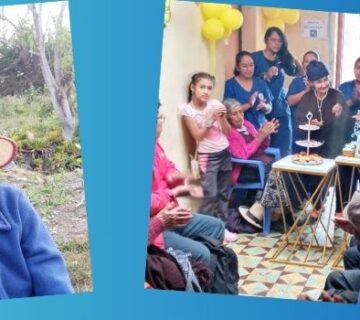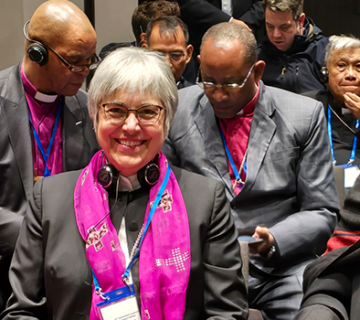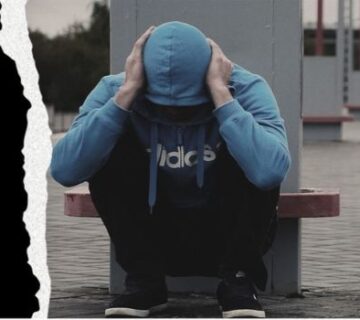Concluding on day two in the splendid setting of Florence’s Palazzo Vecchio with day one at the Theological Faculty of Central Italy was the conference entitled “Vatican Council II and Chiara Lubich’s charism of unity”. With topics ranging from synodality to the commitment to peace and dialogue between individuals and peoples, the event forms part of an extraordinarily topical debate.
The great wave of new ecclesial movements which reached a peak under the pontificate of John Paul II certainly originated in the pre-conciliar period. It subsequently found its raison d’être in the Vatican Council, in particular by the value it gave to the Catholic laity, redefining the Church’s presence in the world (Lumen Gentium) and highlighting the centrality of the Word shared in communion (Dei Verbum). The post-conciliar period then saw a qualitative and quantitative explosion of those movements, valued in their inception and developed by Paul VI then applauded and supported by the Polish pope with his magisterium. A story of unity and distinction, particularly in the Church of the second half of the 20th century, which found its maturest expression in the charism of Chiara Lubich, a charism at the service of unity within the Church and of humanity.
Testifying to the relevance of the charism at the service of unity, in the complex and at times convulsive moments we are living, the conference was part of the great movement of solidarity with victims of the war in Ukraine and with all people of peace who are working in Ukraine and Russia, Europe and Asia, everywhere. Councillor Alessandro Martini reminded us of this on a day when Florence was hosting an international demonstration for peace.
For these reasons, since the Focolare Movement appears to be the first and most widespread ecclesial movement of the conciliar period, an international conference was organised by the Sophia University Institute and the Chiara Lubich Centre to mark the 100th anniversary of the birth of its founder which then had to be postponed twice due to the pandemic. The title was: “The Second Vatican Council and Chiara Lubich’s charism of unity: Dei Verbum and Lumen Gentium“. The venue was the Theological Faculty of Central Italy in Florence on 11 March and the Salone dei Cinquecento at the Palazzo Vecchio on 12 March.
The conference was sponsored by the Comune di Firenze, with participation from the Italian Theological Association, the Theological Faculty of Central Italy (FTIC), the Paul VI Institute, the Giorgio La Pira International Student Centre, Città Nuova, the Abbà School and of course the Focolare Movement. The scientific committee was composed of Alessandro Clemenzia (FTIC), Piero Coda (Sophia University Institute), Florence Gillet, João Manoel Motta and Alba Sgariglia from the Chiara Lubich Centre.
At the Vatican Council’s closing ceremony, in November 1965, Chiara Lubich summarised in a meaningful prayer what is perhaps the Council’s most striking note, the Church born from the presence of Jesus among his own: “Oh Holy Spirit, make us become, through what you have already suggested in the Council, a living Church: this is our only desire from which everything else will follow”. It is in this spirit that the conference set itself the goal of launching an detailed investigation aimed at understanding, on the one hand, whether and how the Council’s message found a fruitful place of interpretation and development in the experience brought about by the charism at the service of unity; and, on the other hand, whether and how the flowering of ecclesial life promoted by the charism of unity were made possible and propitiated by horizons opened up by Vatican II.
Attention was centred in the first stage on Dei Verbum and Lumen Gentium, in order to bring into focus the convergent profiles and the contributions of conciliar doctrine and the inspiration of the charism of unity around the crucial link whereby the Church is born and grows as the historical incarnation, in the breath of the Spirit, of the Word that “became flesh” (Jn 1:14).
The conference programme was particularly dense, as often happens when it is the result of serious work of conception and preparation. A river of words that, little by little, took on their full meaning, thanks to the wide-ranging contributions of the scholars. On the first day, Piero Coda, former Dean of the Sophia University Institute spoke on the theme “A chronological and kairological coincidence: a council and a charism. Towards a theological discernment of the correlation between Vatican II and the charism of unity”), Paolo Siniscalco of the University La Sapienza of Rome (“Chiara Lubich at the time of Vatican II”) and the Istrian-Pisan theologian Severino Dianich (“The event of Vatican Council II event: sacrament…of the unity of the whole human race”). Coda highlighted how the charism at the service of unity has made a very decisive contribution to Church history by way of communion based on the crucified, abandoned and risen Christ. Siniscalco, for his part, wisely and with historical accuracy retraced the various stages of Chiara Lubich’s existential adventure before, during, and after the Second Vatican Council. Dianich, on the other hand, with his characteristic clarity and frankness, gave an interpretation of Vatican II as the cradle for a more secular and communitarian reinterpretation of the Gospel.
On Saturday 12th, the conference moved to a civic setting after the first session took place in an ecclesial setting, as if to reaffirm the charism’s double operational worthiness at the service of unity. In the prestigious venue of Palazzo Vecchio, in the Sala dei Cinquecento, where a number of Focolare meetings have been held since 1964, and where Chiara Lubich herself received honorary citizenship of Florence in 2000, the current President of the Focolare, Margaret Karram, opened the meeting, stressing the importance of Florence as the venue, in memory of Giorgio La Pira, the saintly mayor, a man of peace and the “living Church”. Back in 1974 Chiara Lubich with Cardinal Benelli founded the Giorgio La Pira International Student Centre named after him, thus creating and inseparable link between his name and the city on the river Arno. Florence as a city of peace, therefore, with special ties with the Middle East from which Margaret Karram originates as a Palestinian with an Israeli passport. “We work to weave relationships of peace everywhere, the most precious good that humanity can have”, said the president of the Focolare Movement. She was echoed by Card. Cardinal Giuseppe Betori who was absent for health reasons but who said in his message: “The experience of dialogue, at all levels, that characterised Chiara Lubich’s life, was based on an evangelical intuition about the relationship between interiority and exteriority, where relationship with the other was the causal and consequential extension of intimate union with God”.
As the conference continued in Palazzo Vecchio, Vincenzo Di Pilato (FTP), commenting on Dei Verbum, addressed the theme: “The alphabet to know Christ. The Word of God, a permanent event of salvation in Dei Verbum“. Florence Gillet, from the Chiara Lubich Centre, dealt with a theme on the borderline between history and ecclesiology: ‘The Word of God in Chiara Lubich: the living presence of Christ that generates Church’. This was followed by a round table with Giovanna Porrino (IUS) on “The Word in the life of the Church”, Declan O’Byrne (IUS), “The Word and the Spirit”, Angelo Maffeis (FTIS) on “The Word of God as a principle of unity” and with the evangelical theologian Stefan Tobler (USBL) on “A mysticism of the Word as the way to ecumenism”.
This was followed by the third and final session of the conference, dedicated to Lumen Gentium, with an eagerly awaited talk by Bishop Brendan Leahy (Bishop of Limerick, Ireland) on “The Church and the Marian Principle”. The following round table saw interventions from Alessandro Clemenzia (FTIC / IUS), “The Church from the Trinity”, Assunta Steccanella (FTT/TV), “The Messianic People”, Erio Castellucci, Bishop of Modena-Nonantola and Vice-President CEI, “Episcopal Collegiality and Synodality of the Church” and Cristiana Dobner (Discalced Carmelite), “The Charisms in the Mission of the Church”. Finally, the theologian Yvonne Dohna Schlobitten of the Gregorian University spoke on the theme of “An icon of Vatican II ecclesiology”.
On 11 and 12 March, the Sala dei Cinquecento, full of warlike symbols in the large paintings on the walls, heard words of peace from La Pira, Bargellini and Lubich, and thus hosted an event that showed how the Church and civil society can bear witness to communion and dialogue, stimulating politics to make peace and peace-building its own goal.
Michele Zanzucchi


 Italiano
Italiano Español
Español Français
Français Português
Português




Sulla scia di Giorgio La Pira, è tradizione che le amministrazioni locali promuovano la pace nel cuore degli uomini.
Interessantissima proposta per i tempi di oggi con tt.ma attenzione all’approfondimento dea Lumen Gentium …..scoperta ora che potenzialità e profondità
Grazie anche per la schiettezza nell’uso e parole e termini cordialmente
Luisa Busato